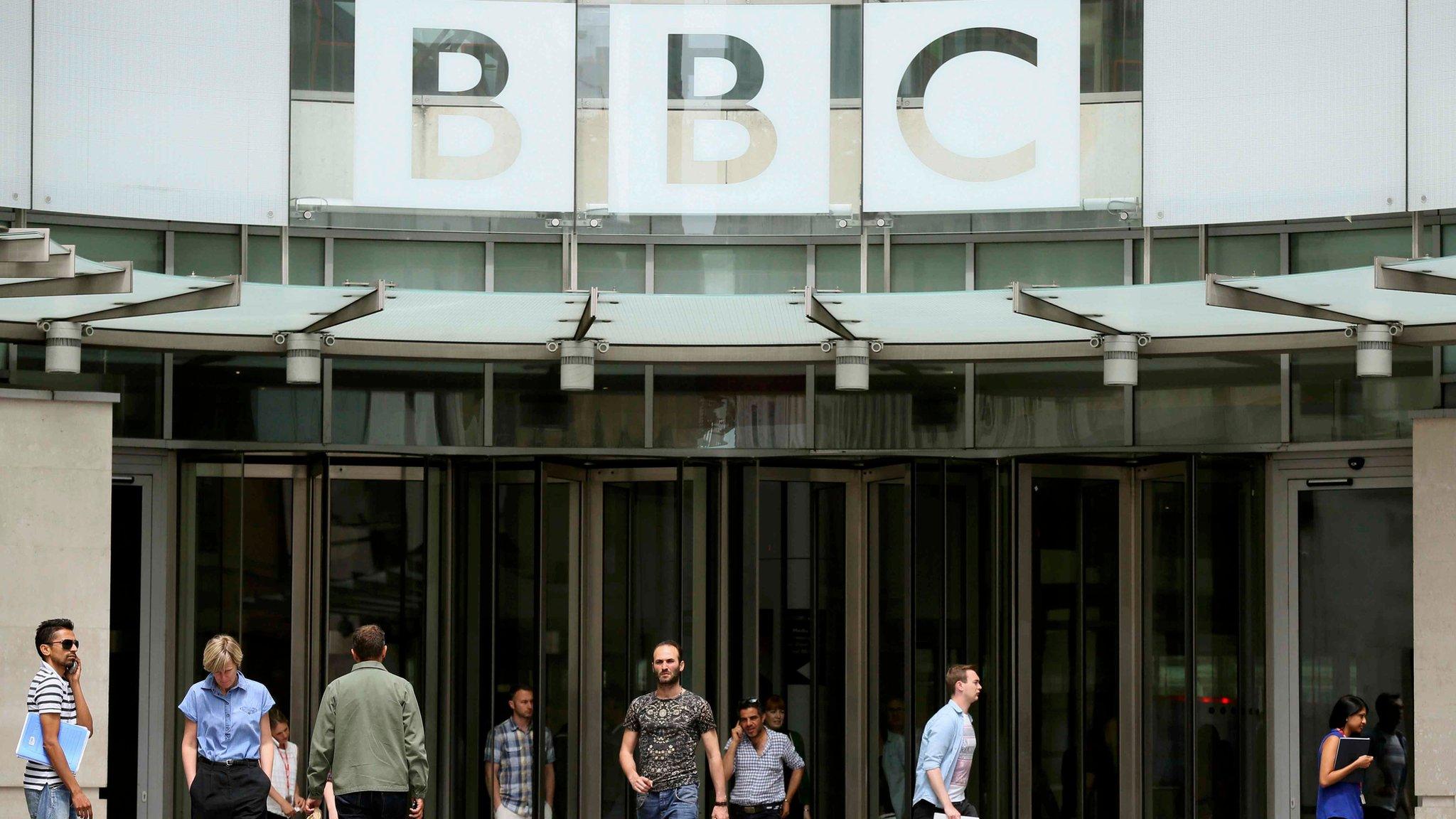BBC iPlayer 'loophole' to be closed soon, says culture secretary
- Published
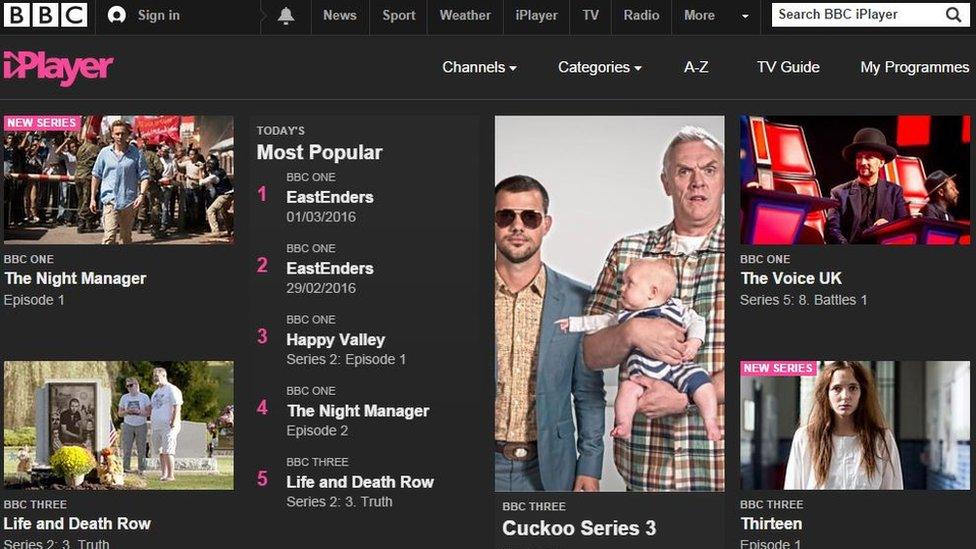
The culture secretary plans to bring forward secondary legislation to close the licensing loophole
The culture secretary has vowed to end the iPlayer "loophole" soon, so those watching catch-up TV do not get "a free ride".
John Whittingdale said the licence fee would be extended so it no longer just applied to live television viewers.
He told the Oxford Media Convention he would bring forward the legislation "as soon as practicable", later adding it could be in this parliamentary session.
The BBC said it was "happy to have reached an agreement" on the issue.
Only UK TV licence holders can use the iPlayer to watch BBC programmes as they are broadcast live, but currently those without a licence can view the shows at a later date.
Free viewing 'is wrong'
Mr Whittingdale said: "When the licence fee was invented, video on demand did not exist.
"And while the definition of television in the legislation covers live streaming, it does not require viewers to have a licence if they watch BBC programmes through the iPlayer even if it is just a few minutes after transmission.
"The BBC works on the basis that all who watch it pay for it.
"Giving a free ride to those who enjoy Sherlock or Bake Off an hour, a day or a week after they are broadcast was never intended and is wrong."
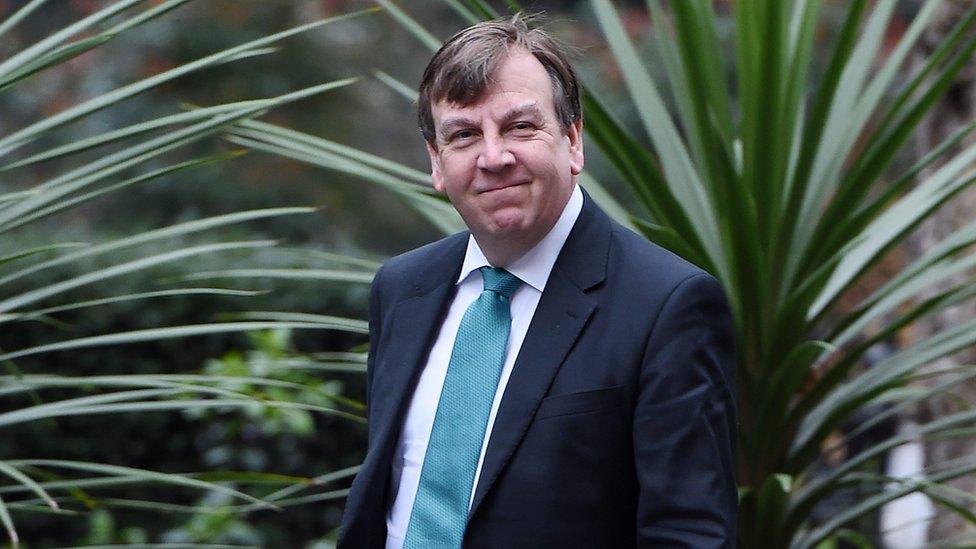
John Whittingdale said he would attempt to get a slot for the legislation in this parliamentary session, which ends in July
An agreement was reached between the government and the BBC last July that the government would update licence fee legislation, as part of negotiations that saw the corporation agreeing to cover the cost of providing free licences for over-75s.
In his keynote speech, Mr Whittingdale said: "Having discussed this with the BBC and the BBC Trust, I will be bringing forward, as soon as practicable, secondary legislation which will extend the current TV licensing regime, not only to cover those watching the BBC live but also those watching the BBC on catch-up through the iPlayer."
Speaking later, Mr Whittingdale said an order would have to be drafted and agreed by Parliament on the licensing change, which he would try to get passed "as soon as we can".
He added: "It could be this session if I can get it done and get a slot."
The current parliamentary session ends in July.
A BBC spokeswoman said: "We are happy to have reached an agreement with the Secretary of State on how to close the iPlayer loophole. Its swift closure will help give the BBC funding certainty."
Ad-blocking 'presents challenge'
Mr Whittingdale also launched a new drive to tackle ad-blocking, saying it poses a similar threat to websites that illegal file-sharing did to music and film a decade ago.
"This practice is depriving many websites and platforms of legitimate revenue," he said. "It is having an impact across the value chain, and it presents a challenge that has to be overcome. Because, quite simply, if people don't pay in some way for content, then that content will eventually no longer exist.
"And that's as true for the latest piece of journalism as it is for the new album from Muse."
He pointed to research that showed while people do not dislike online advertising in general, they do not like advertising that "interrupts what they are doing", such as auto-play adverts and pop-ups.
"If we can avoid the intrusive ads that consumers dislike, then I believe there should be a decrease in the use of ad-blockers," said the culture secretary.
Mr Whittingdale said he would be meeting "representatives from all sides of the argument" in the coming weeks to discuss the issue, adding that he did not think ad-blockers should be banned.
- Published1 March 2016
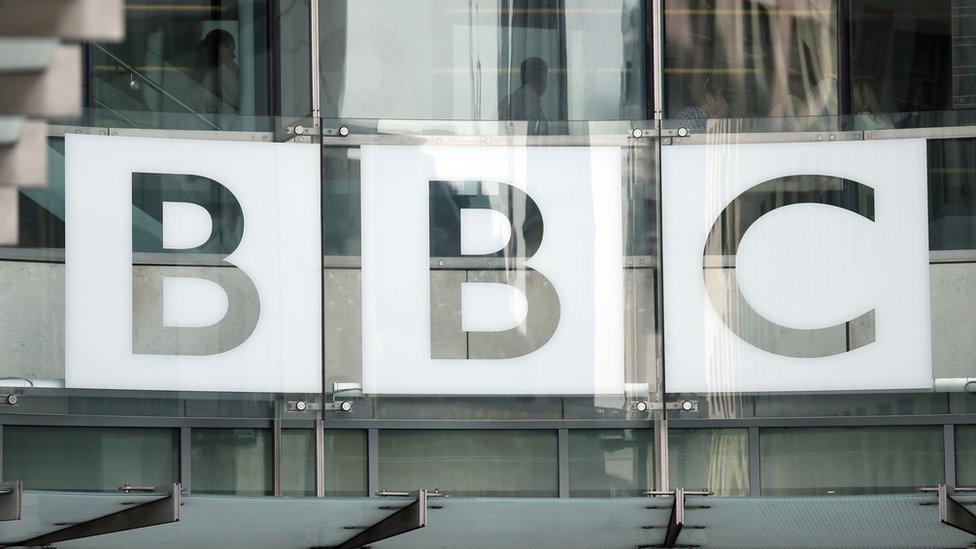
- Published19 February 2016

- Published18 September 2015

- Published25 January 2016
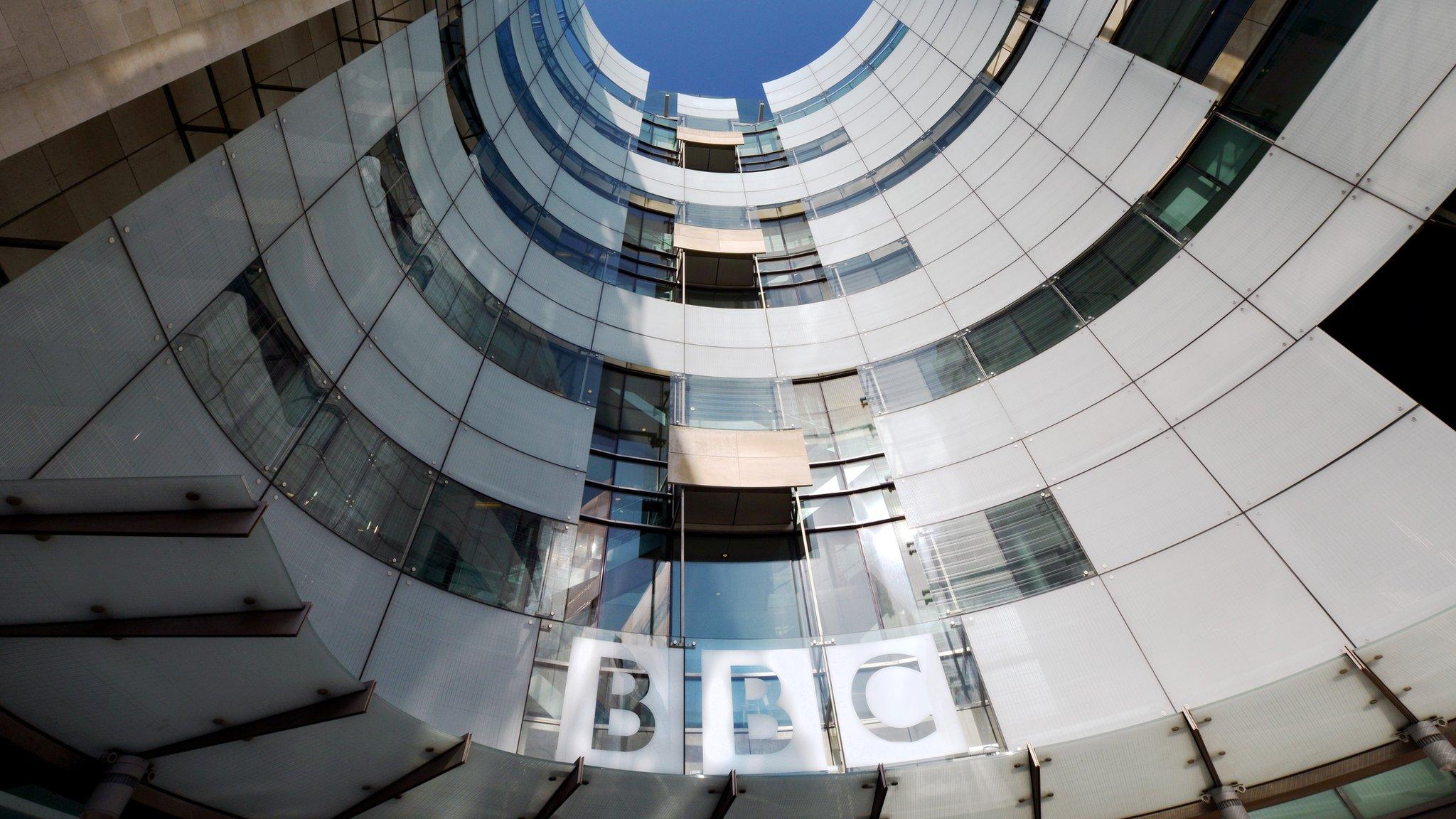
- Published6 July 2015
